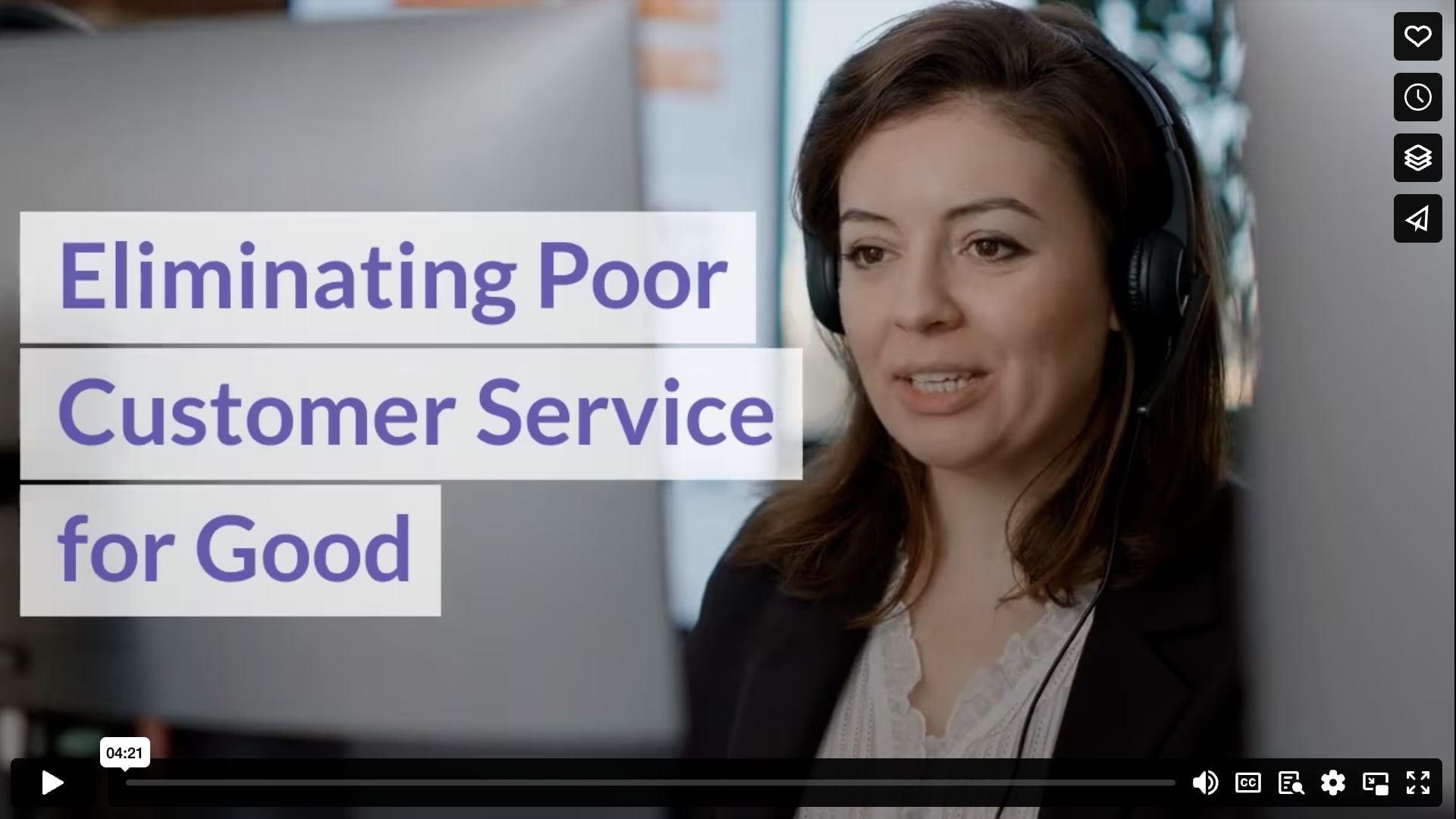Poor customer service can kill a business. Not only can you lose the initial customer, but they are likely to post a bad review of your company if they have a bad experience and scare off potential leads.
We value customer reviews when deciding on a business. It helps weed out the companies that will waste time or are difficult to deal with. There is so much competition out there; customers can be picky. Don’t let bad customer service hurt your business.
Avoid These Bad Customer Service Experiences
You’ve had negative experiences when reaching out to companies. It’s off-putting. It makes the customer want to shop around. So, here are some of the types of poor customer service to avoid:
Long Hold Times
Anyone who has been on hold for more than an hour will agree that long wait times are ridiculous. Some industries get away with it because there are no other options, like government agencies. However, businesses with competition need to pay more attention to customer satisfaction to retain clients.
When a customer calls and is placed on hold, they will only stay in limbo for so long before hanging up in frustration. The time they wait depends on the nature of the information they seek and how important it is to get it today. When seeking critical information, they will wait longer than otherwise.
Let’s say a customer has a question about documentation they need for their tax appointment. If you’re a small firm, you may get overloaded with work during tax season, and things get backed up. If you’re a large firm, the sheer number of clients could create long wait times. Either way, the following statistics give a better idea of how clients respond:
- 90% of people say an immediate response to a customer service question is very important.
- 44% are annoyed or irritated when hold times last 5 to 15 minutes.
- 83% prefer speaking to only one person to resolve issues.
- 48% switched brands after poor customer service.
Using an automated text messaging system listing the required forms and documentation, on the other hand, would save them a phone call and any associated frustration.
Scheduling Problems
When people take time off work to attend an appointment, they expect the person they’re meeting with to be available at the specified time. Using an appointment scheduler for small businesses helps ensure you schedule time between appointments in case an appointment runs long or you need to finish paperwork before moving on to the next client. It’s also important that the appointment setter software be accessible to everyone and that changes are updated in real time so you don’t double-book clients.
Lack of Empathy
People respond better to longer waits and complicated workarounds if they feel the customer service representative empathizes with their frustration.
- If they’ve been on hold a while as you get answers, check in with them and keep them updated. That way, they know you didn’t forget about them or got stuck on another call. You’re actively working on the problem.
- Apologize to customers for lengthy hold times.
- Listen to understand rather than rush to get to the next customer.
- Try to resolve all issues in a single phone call so they don’t have to call again, and let them know that’s what you’re doing, especially if it’s taking a while.
This applies to in-person interactions as well. Sometimes, things go wrong. How you handle the incident can make a difference in their overall satisfaction if they see you working to resolve the issue. Everyone makes mistakes. How we handle them decides the customer experience. A well-handled mistake can actually be a positive selling point for the customer because it shows integrity and empathy on the part of the employee.
Escalation
Anyone dealing with the public understands that some customers push your buttons. They might be unreasonable in their expectations, want to defect, or are rude and impatient. This is when a customer service representative (or manager) needs to pull on their reserves of control and patience.
You can’t control the customer, but you can refuse to let them bait you into an argument. Not only does it preserve your mental and emotional health, but any other customers in the room can only be impressed by the professional manner in which you conduct yourself.
Inflexibility
Company policies answer the needs of the majority of the people. However, there are times when you need to bend policy to make things right. Take a franchise, for example. If the online store sells the same product at a different price and the customer brings that to your attention, then it makes sense that you match your company’s online price for customer satisfaction.
- Denying the price match will annoy the customer.
- They may decide not to use your store anymore if it’s cheaper to buy things online.
- They may go to a competitor because the encounter turned them off the company as a whole.
Ultimately, it comes down to the golden rule. Put yourself in your client’s shoes and treat them with the same respect you expect from others.
Video
Infographic
Poor customer service can harm a business, leading to lost customers and negative reviews. To retain customers, it’s crucial to avoid such situations. Check out this infographic for examples of poor customer service to avoid.





